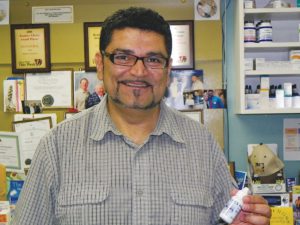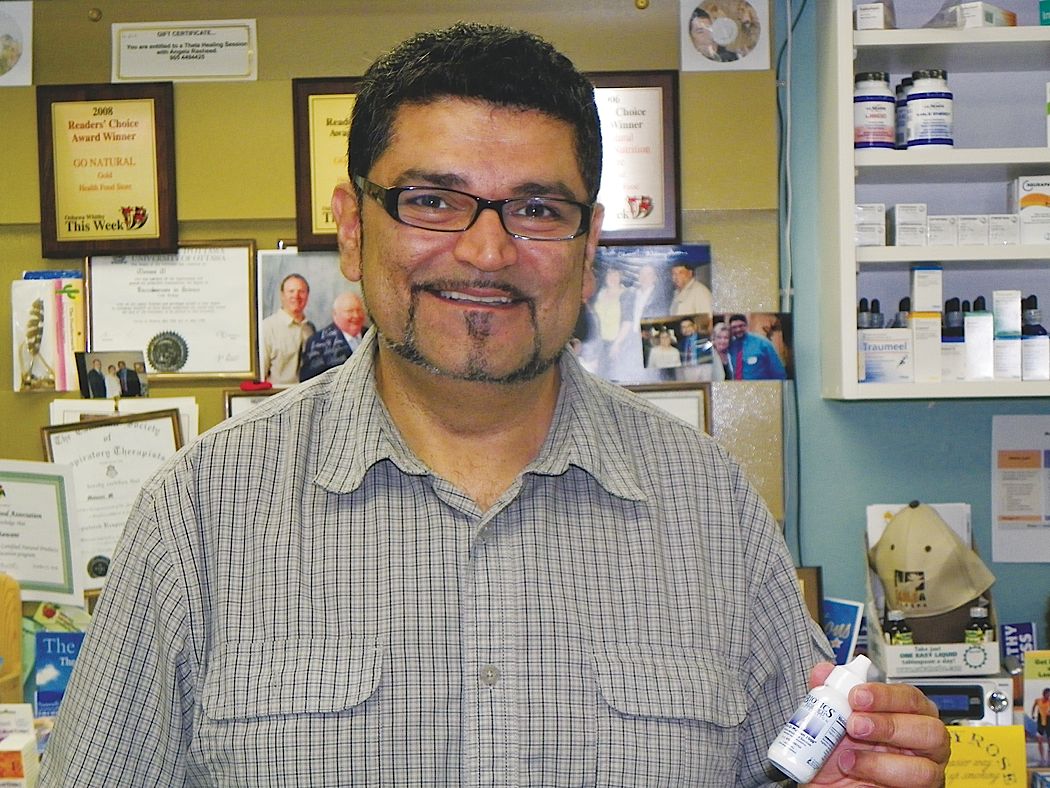Wayne Hudson
Sports & Health Editor
If you haven’t managed to buy your gym membership from Tait McKenzie yet (and with the size of those lines, who can blame you?), new research may have found another way to fight off excess flab: vitamin D.

Current research shows us that the benefits of vitamin D have far surpassed what nutritionists and specialists traditionally thought.
Nick Mawami, president and CEO of Go Natural Canada, agrees with these findings and says that “the news says that it is new right now, but knowledge of this fact has been around for years.”
Having worked in the field for years after graduating from the University of Ottawa, interning at Royal Alexandria Hospital in Calgary, and being the top student in Alberta for respiratory therapy, Mawami can attest that vitamin D has amazing benefits.
“[Vitamin D] is involved in the prevention of colon cancer […] multiple sclerosis, and joint pain,” he says. “Its reach is quite far.”
Since vitamin D is fat-soluble it has the properties of both a vitamin and hormone, which is what contributes to its vast positive effects on the human body.
Mawami says that vitamin D deficiency can lead to excess weight, along with other problems such as rickets in children, loss of appetite, a burning sensation in mouth and throat, diarrhea, insomnia, and vision problems-—all for the lack of a vitamin that the sun’s rays provide.
Especially during the colder winter months, we are not exposed to enough sunlight, causing the deficiency to occur and its negative effects to manifest.
As the lack of sun exposure seems to increase each year due to global warming, the defiency increases.
Solutions to this problem can either be supplementation or just changing the daily diet. A few foods that increase vitamin D levels are fish liver oils, dairy products, eggs, milk, oatmeal, and sweet potatoes.
To supplement your intake, there are multi-vitamins and vitamin D drops, which have proven to be the most effective source. It is not until you get older—above 40—where extraction of vitamin D lessens and drops become “essential”.
However, there has been some skepticism on this matter in the scholarly world when it comes to toxicity levels, Mawami assures us that the skepticism is unfounded.
“Let’s put that idea to rest,” says Mawami. “If you do research on the toxicity of vitamin D in your online libraries, it will show toxicity is not an issue.”
However, Mawami has other concerns on his mind.
“The youth today unfortunately are distracted by the computers and activities instead of […] their wellbeing,” he says. “They need to focus on their own wellbeing. Based on that wellbeing they will be able to improve their own personal lives—and families by extension—and their own personal performance.”
Mawami wants the younger generation to understand that the brain is a functional organ and if it is healthy they will get better marks. Only with conscious effort put forth to sustain the body’s health will results come.
The research and the products are there, states Mawami. All a person needs is the knowledge about products and what they can do for you.
“They need to get back to the basics,” he says. “Exercise well, eat well, and do things that won’t push you down in the long run.”
Nick Mawami has been invited to many events over the years to share his findings and knowledge with more people. For any questions and for further information feel free to visit his website.




